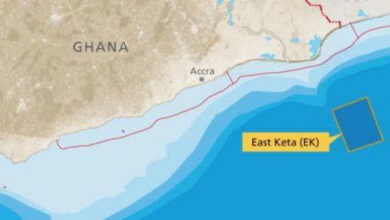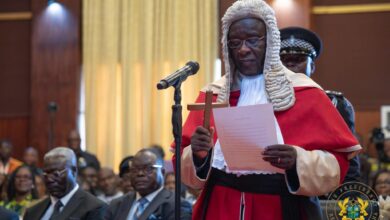
There were no regulatory, governance approvals for NIA transactions – GRA raises issues with GH¢376 million NIA debt
The Ghana Revenue Authority (GRA) has raised issues with the said GH¢376 million debt being demanded by the National Identification Authority (NIA)
According to the GRA, from its present assessment, “there were no regulatory and governance approvals for the transaction that created the purported debt.”
In a press statement issued Wednesday [Aug 6, 2025] morning in reaction to the NIA’s disconnection of the GRA from the identity verification platform over the unpaid debt, the GRA said its “principles of transparency, compliance and governance protocols do not permit enforcement of transactions that do not meet regulatory requirements, particularly as demanded by the reset vision of the President and the government.”
It said “as part of the existing arrangements between the two agencies, NIA was allowed and had set up their desk offices at GRA premises nationwide where they (NIA) register individuals and issue them with the National Identification cards without paying rent and utilities to the GRA for years.”
The NIA on Tuesday disconnected the GRA from its Identity Verification Service (IVS) platform due to indebtedness.
The GRA is said to be owing close to GH₵376 million and has refused to pay the NIA.
This has compelled the NIA to take the decision to disconnect the GRA from the system.
The NIA is seeking other options to try and completely delete its entire data from the GRA systems by contacting the Data Commission on the issue.
This development has started affecting exporters and importers, some of whom have been left stranded and unable to clear their goods.
It is following this development that the GRA has issued the statement, a copy of which has been attached below:
NIA DISCONNECTS GRA FROM IDENTITY VERIFICATION PLATFORM OVER UNPAID FEES
The attention of the Ghana Revenue Authority (GRA) has been drawn to recent media reports and public statements by the National Identification Authority (NIA), alleging GRA’s indebtedness to the NIA leading to disconnecting GRA from their Identity Verification Platform (IVS).
GRA expresses great surprise to the averments made by NIA and wishes to clarify the issue as follows:
There appears to be a Legacy Debt inherited as a result of some services rendered to the Authority by NIA prior to 2025.
From the GRA’s present assessment, there were no regulatory and governance approvals for the transaction that created the purported debt. GRA’s principles of transparency, compliance and governance protocols do not permit enforcement of transactions that do not meet regulatory requirements, particularly as demanded by the reset vision of the President and the Government.
As part of the existing arrangements between the two agencies, NIA was allowed and had set up their desk offices at GRA premises nation-wide where they register individuals and issue them with the National Identification cards without paying rent and utilities to the GRA for years.
There are current high-level discussions between the two agencies in resolving the issues particularly where GRA has identified some procedural breaches and cannot affirm the existence of a service agreement between the parties.
GRA acknowledges the importance of inter-agency collaboration in achieving national objectives, including the integration of the Ghana Card into the tax system.
In this regard, GRA extends collaborative hands to NIA while emphasing the need to improve our cordial relationship and resolve matters amicably.
GRA uses this opportunity to reassure taxpayers and the general public of its commitment and adherence to its values of fairness, integrity, responsiveness, service and teamwork.




